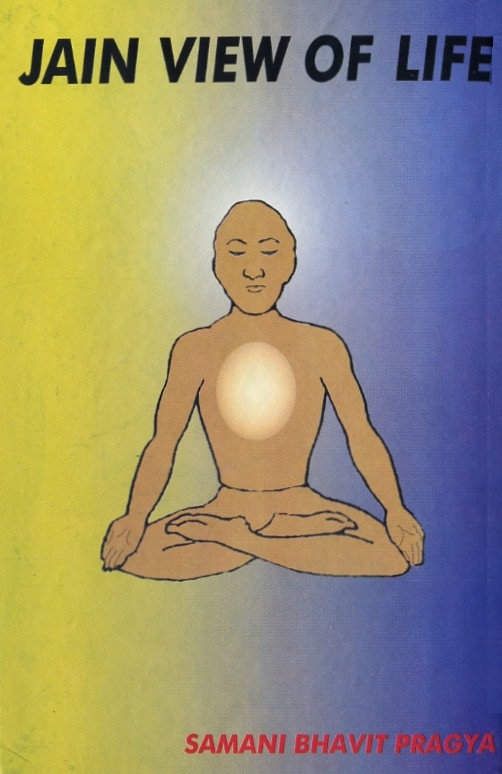Non-Possession
The present world is passing through critical situations. Undoubtedly, modern science, in its long life of one hundred and fifty years has been able to explore the hidden secrets of nature and the dreadful forces. Material machinery has overpowered us, but, at the same time, has failed to take control over passions. Today people have become conscious of the ruin and carnage which atomic warfare can bring. A world full of war is lacking in spiritual values, increasing selfishness, greediness, corruption, violence, licentiousness, absence of moral discipline, exploitation of consumers, etc. In this situation, the doctrine of non-possession (Aparigraha) is very valuable and relevant to solving worldwide problems.
The Root of possession
Parigraha (possession) means having the desire to possess. As long as one has desire to possess, one never escapes committing violence. It is mentioned in Dashavaikalika Sutra that the root of possession is moorch (attachment). It is attachment which gives birth to desire for possession, ownership, and occupation. Accumulation is an expression of one's greedy attitude. Greediness is the main cause of all sins. The greed goes on increasing as man goes on gaining. The more worldly possessions a person has, the more he or she is likely to commit sins to acquire more possessions. In the long run, one is likely to be more unhappy.
Andrew Carnegie was a wealthy man from Scotland. He earned 20 billion rupees in his life time. Three days before dying, his friend was sitting near him. The friend said to him, "Friend, you have earned a good name and fame as a wealthy man in Scotland. Thanks for your hard work".
No sooner had Andrew heard these words than he became sad. The friend insisted Andrew to tell him the reason for his sadness. Andrew said him, "what should I say? I am defeated. It is impossible for me to earn more. I used to think that I would earn 100 billion in my life, but my dream remained incomplete. Now I am ready to leave my body. While departing from the world, I will take my desire with me".
The Result of Possession
The result of having too many possessions leads one to unhappiness. Desire breeds misery and blinds one to everything else. It clouds thinking and leads people to tell lies, to steal, to long for things that belong to others, and people hanker after more worldly things. A millionaire with all the so called means of happiness, namely, a position in life, a fine and big house with all the comforts, a handsome mate, and a royal car, is never satisfied with what he or she has. If one makes a target of a million and gets it, if one desires to reach a particular position and gets it, if one has a desire to get a particular house and gets it, and so on and so on; then, at some point, desire must end. However, a new desire emerges resulting in unhappiness, sorrow, and misery. In such a way, the chain of desire continues.
The Highest Limits of Progress
Now a days it is said about advancement that people must toil harder for more production from lands and industry. Only then will all be happy. But the question is, will one really be happy even when one has acquired objects of sensual pleasures? If the answer to this question is affirmative, then the people of the United States, who have reached the highest limits of progress, prosperity, abundance, and amenities, must be the happiest of all. But this is not so in reality. A considerable number of people living in the U.S. are found to be fearful, confused, anxious, stressed out, and disquieted.
Consumer cultures believe that living in comfort and leading luxurious lives is the only way to achieve human progress and prosperity; however, the doctrine of non-possession firmly holds that, through this consumer culture and luxurious living, we cannot achieve peace and true prosperity. Material goods are limited, the consumers are preponderate, and their desires have no end... like the sky. Uncontrolled desires result in uncontrolled activities in the material world.
Man's Motto in Contrast to Non-possession
Today man's motto is, "Earn more money, spend more money, and increase the standard of living". Simple living and higher thinking is contrasted to the modern age. Scientists and industrialists want to provide man with more and still more amenities. They evolve new products and create a demand in people's minds. It seems that essential needs of life have become secondary, but the means of comfort seeking mentality have become primary. Under these conditions, environmental balance has become spoilt. Luxurious living and the comfort seeking mentality disturbs the ecological balance and pollutes the air, water, and earth, which are man's most basic needs for life. The earth is being exploited to the maximum extent. The sources of energy are fast diminishing. Some regions of the world are suffering from the consequences of the ruthless cutting down of trees and forests. The destruction of the trees causes the scarcity of rain. Modern science is busy finding new sources of energy depleting available resources.
A Great Hole in the Ozone Layer
Demand and supply, desire and its gratification, a comfort seeking mentality, and opportunistic views have encouraged violence and upset the environmental balance. There is a great hole in the ozone layer. If it is completely ruptured, sun rays will directly come on earth, then none can survive. Atomic energy can kill thousands and thousands of people.
Self Imposed Limitation
Class conflict, war, and violence are due to economic and social inequalities. If we want to eradicate war and violence from the earth, we must stop hoarding and should put a self-imposed limitation on our possessions. Marx revolted against social injustice. He observed, "Capital is a social power", but he forgot to take into account that human beings are the units of society and, hence, no social structure can be effectively improved without first improving its units. Mahatma Gandhi has also given the wonderful suggestion of trusteeship to businessman and the wealthy.
Solution of a World Wide Problem
Lord Mahavira expounded the doctrine of non-possession to solve world-wide problems. To lead a peaceful, blissful, and Jain life-style one should curtail desire and take control over one's needs. Accumulation is the basic instinct of a human being even though one should cut down those desires which are not necessary to maintain life. Less desire gives birth to less possession. Less possession leads one to do less violence. By the practice of voluntarily limiting of one's own possessions, one can escape from unnecessary hoarding which has become a menace in the present capitalistic age. If the principle of non-possession is followed, the heavy work for the welfare of humanity and other activities can be facilitated. Non-possession is to be observed in real practice in speech, mind, and deed.
A Life of restrained Living
The past history of India is replete with examples to show that a multi-millionaire Ananda Shravak, Kamadeva householder, etc., had led a life of restraint limiting the use of paraphernalia to the bare requirement. They did not use the wrong means for earning money and also put limitations on possessions giving up proprietorship of property. Whereas, Jain monks practise non-possession completely in speech, mind, and deed. They do not possess unnecessary things, ask others to do so, nor do they approve of such activities. Contentment is a property of the monk's life, as is remaining happy with whatever one has without hankering after what cannot be had. To be non-possessive is the only realistic way to live a happy, contented, and peaceful life.
 Samani Bhavit Pragya
Samani Bhavit Pragya
